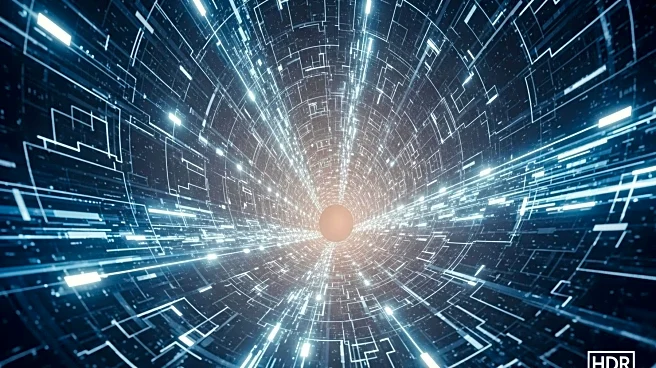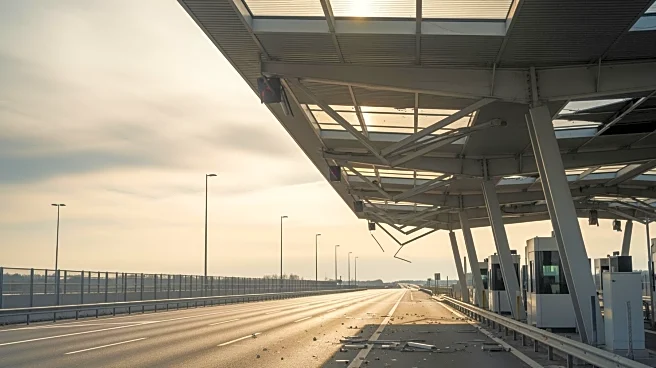What is the story about?
What's Happening?
Researchers are utilizing machine learning approaches to predict the construction time of drill-and-blast tunnels. The study involves the use of various machine learning models, including Gaussian Process Regression (GPR), Support Vector Regression (SVR), and Decision Tree Regression (DTR), to analyze data from tunnel projects. These models help estimate construction timelines by considering factors such as ground conditions, tunnel design, and project management practices. The research aims to improve accuracy in predicting construction time, which is measured in man-hours per meter of tunnel advancement. The study uses data from eight road tunnels constructed in Iran between 2012 and 2023, providing insights into the interaction of various construction parameters.
Why It's Important?
The application of machine learning in construction project management represents a significant advancement in the industry. Accurate predictions of construction timelines can lead to better resource allocation, cost management, and project planning. This technology can help mitigate risks associated with budget overruns and delays, which are common in large-scale infrastructure projects. By improving efficiency and reducing uncertainty, machine learning models can enhance the overall productivity and sustainability of construction projects, benefiting stakeholders such as contractors, engineers, and policymakers.
Beyond the Headlines
The integration of machine learning in construction also raises questions about the future of workforce roles and the need for specialized skills in data analysis and technology management. As these models become more prevalent, there may be a shift towards more data-driven decision-making processes in the industry, potentially impacting traditional construction practices and job functions.















